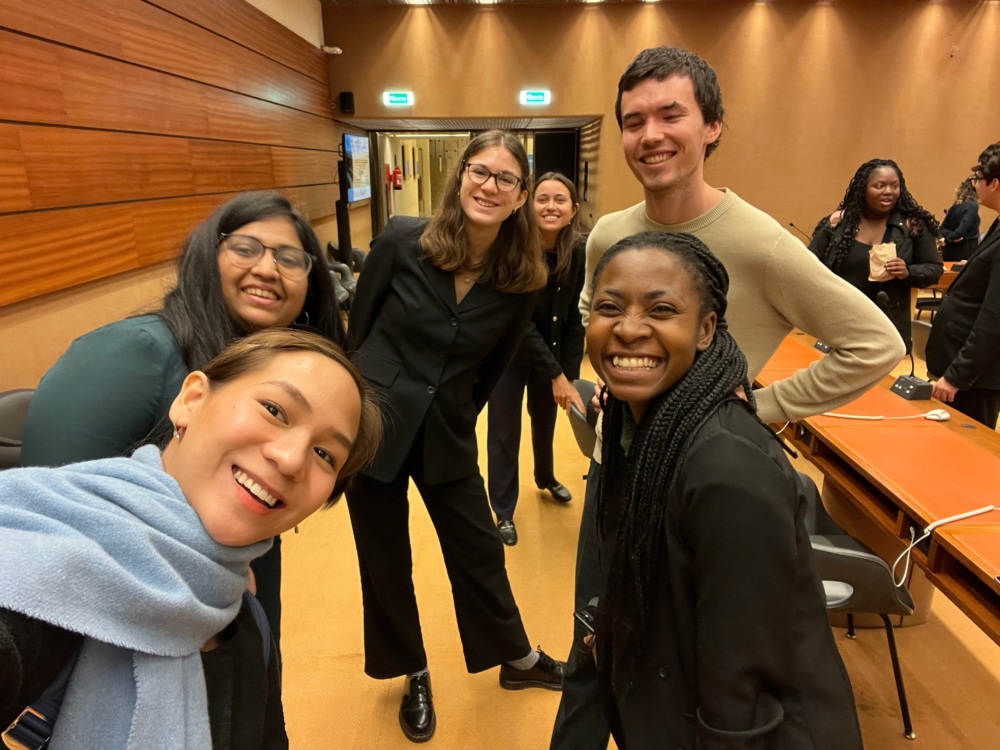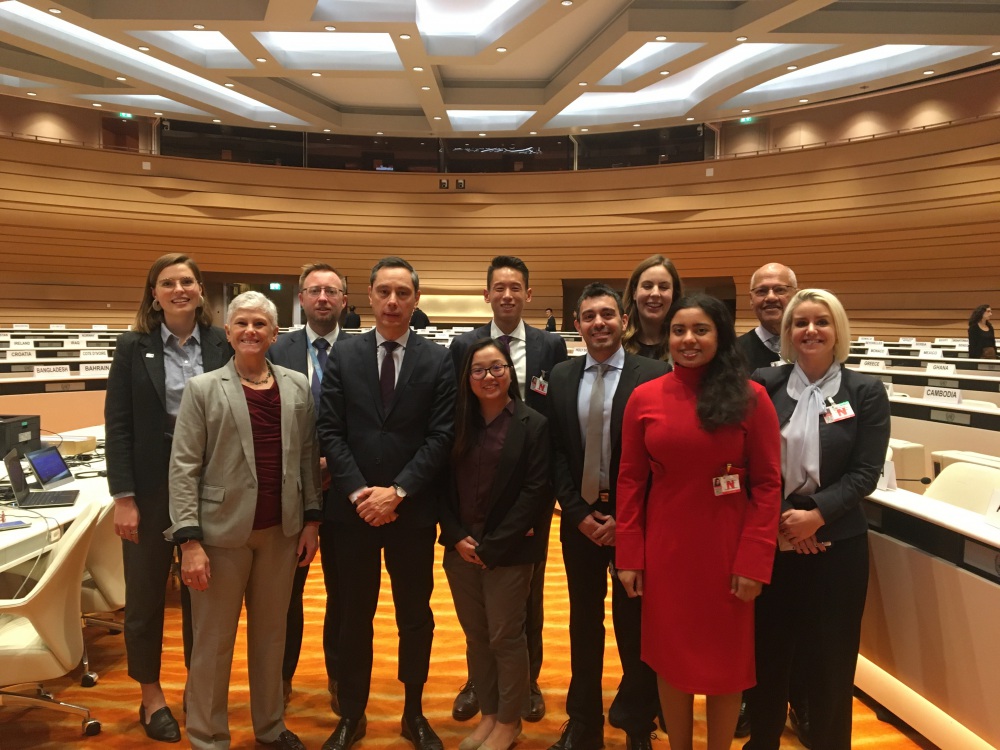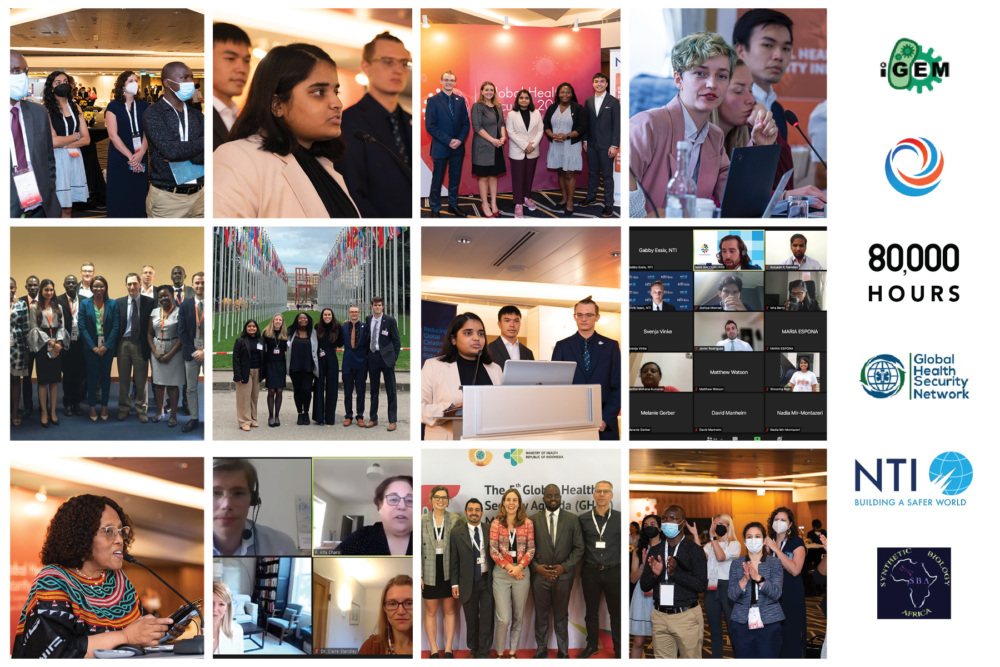
Apply for the 2024 NTI | bio Next Generation Biosecurity Delegation
NTI | bio will bring a 2024 Next Generation Biosecurity Delegation of early-career professionals to the Biological Weapons Convention (BWC) meetings from August 19 – 23.
NTI | bio hosted two events with government officials and experts from around the world during the 2019 Biological Weapons Convention (BWC) Meeting of States Parties held in Geneva, Switzerland in early December. The events were designed to discuss next steps to fill global gaps in capability to prevent deliberate and accidental biological events and to reduce emerging biological risks associated with advances in technology.
The first event, on December 4, highlighted regional biosecurity models and new, innovative actions catalyzed by the NTI Global Biosecurity Dialogue. A panel of international biosecurity champions from Africa, North and South America, Southeast Asia, and Europe discussed their efforts to develop new capacity to reduce deliberate and accidental biological risks. Notably, the African Union, Africa Centres for Disease Control and Prevention briefed the BWC audience on its new continent-wide Initiative to Strengthen Biosecurity and Biosafety, which NTI is supporting. The effort marks a major, high-level action by a regional organization to accelerate Member State efforts to hit specific biosecurity and biosafety targets. In 2020, NTI will work with these and other biosecurity champions through the Global Biosecurity Dialogue to improve coordination among governmental and non-governmental partners toward common biosecurity and biosafety targets, create innovative solutions to overcome persistent biosecurity and biosafety barriers, and continue to advance biosecurity as an integral component of outbreak preparedness.
The second event, on December 6, was designed to raise awareness about the important role of non-governmental and next-generation biosecurity professionals in reducing emerging biological risks associated with advances in technology. Experts from Africa and South America discussed two new pilot projects launched under NTI | bio’s Biosecurity Innovation and Risk Reduction Initiative. The projects aim to: 1) improve the process for assessing the risks and benefits of life science research through all phases – from study design, to funding, to peer review, and, finally, publication; and 2) develop a “seal of approval” for researchers and practitioners who adhere to international peer-based biosecurity standards for life science research. The work seeks to build biosecurity in parallel with advances in biological capabilities and enhanced global health security capacity.
The Dec. 6 event also featured dynamic presentations from the winners of the NTI-sponsored 2018 and 2019 Next Generation for Biosecurity Competitions. The winners of the 2018 Competition presented a new open-access biosecurity eLearning platform – “Act Like a Pro” – which was created jointly by young professionals in Argentina, Uganda, and the United Kingdom. The winners of the 2019 Competition presented a new proposal – “SynthRITE (Research, Innovation, Technology, and Ethics)” – which describes the need for a virtual online community to facilitate biosecurity and biosafety discourse across a wide range of stakeholders to contribute to the dialogue around international norms in the life sciences. The NTI Next Generation Biosecurity Competition promotes a global cadre of multi-sectoral professionals dedicated to enhancing biosecurity and reducing catastrophic biological risks.
Sign up for our newsletter to get the latest on nuclear and biological threats.
NTI | bio will bring a 2024 Next Generation Biosecurity Delegation of early-career professionals to the Biological Weapons Convention (BWC) meetings from August 19 – 23.
Gurpreet Dhaliwal, Askar Kleefeldt, and Alexandra Klein have won the seventh annual Next Generation for Biosecurity Competition.
NTI | bio, the Next Generation for Global Health Security (GHS) Network, the iGEM Foundation, 80,000 Hours, SynBio Africa, and the Global Health Security Network (GHSN) have launched the seventh Next Generation for Biosecurity Competition.


